Metals Raw Materials in UAE
(11 products available)Metals Raw Materials are essential components in the production of various goods and play a crucial role in modern industries. These materials which contain metals such as iron, copper, and aluminum are extracted from the earth and processed for use in manufacturing. These raw materials help to understand their importance in everyday products ranging from building materials to electronics.
The process of getting and preparing these raw materials involves complicated steps to make sure they meet the standards needed for production. You might find it interesting that raw metals can be divided into two types: The extraction and processing of these raw materials involves complex operations to ensure that they meet the required specifications for production. You may want to know that raw metals fall into two groups: ferrous and non-ferrous. Ferrous metals have iron in them and stick to magnets, while non-ferrous metals don't have iron, tend to be lighter, and don't rust as much. As industries keep growing, they'll need more top-notch metal raw materials. This has a big impact on how economies grow and technology moves forward.
Discover Metals Raw Materials in UAE on TradersFind. We connect you with trusted raw material suppliers for various needs. Our easy-to-use platform lets you explore options and find exactly what you want. Plus, we give you direct contact details for each supplier, making your buying process smoother. With TradersFind, getting high-quality raw metals in UAE is simpler and quicker than ever.
Metals Raw Materials are essential components in the production of various goods and play a crucial role in modern industries. These materials which contain metals such as iron, copper, and aluminum are extracted from the earth and processed for use in manufacturing. These raw materials help to understand their importance in everyday products ranging from building materials to electronics.
The process of getting and preparing these raw materials involves complicated steps to make sure they meet the standards needed for production. You might find it interesting that raw metals can be divided into two types: The extraction and processing of these raw materials involves complex operations to ensure that they meet the required specifications for production. You may want to know that raw metals fall into two groups: ferrous and non-ferrous. Ferrous metals have iron in them and stick to magnets, while non-ferrous metals don't have iron, tend to be lighter, and don't rust as much. As industries keep growing, they'll need more top-notch metal raw materials. This has a big impact on how economies grow and technology moves forward.
Discover Metals Raw Materials in UAE on TradersFind. We connect you with trusted raw material suppliers for various needs. Our easy-to-use platform lets you explore options and find exactly what you want. Plus, we give you direct contact details for each supplier, making your buying process smoother. With TradersFind, getting high-quality raw metals in UAE is simpler and quicker than ever.
Metals Raw Materials are essential components in the production of various goods and play a crucial role in modern industries. These materials which contain metals such as iron, copper, and aluminum are extracted from the earth and processed for use in manufacturing. These raw materials help to understand their importance in everyday products ranging from building materials to electronics.
The process of getting and preparing these raw materials involves complicated steps to make sure they meet the standards needed for production. You might find it interesting that raw metals can be divided into two types: The extraction and processing of these raw materials involves complex operations to ensure that they meet the required specifications for production. You may want to know that raw metals fall into two groups: ferrous and non-ferrous. Ferrous metals have iron in them and stick to magnets, while non-ferrous metals don't have iron, tend to be lighter, and don't rust as much. As industries keep growing, they'll need more top-notch metal raw materials. This has a big impact on how economies grow and technology moves forward.
Discover Metals Raw Materials in UAE on TradersFind. We connect you with trusted raw material suppliers for various needs. Our easy-to-use platform lets you explore options and find exactly what you want. Plus, we give you direct contact details for each supplier, making your buying process smoother. With TradersFind, getting high-quality raw metals in UAE is simpler and quicker than ever.
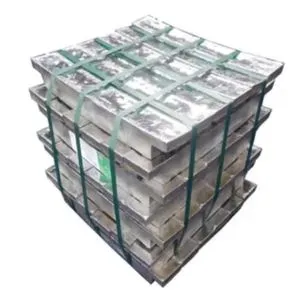
- Usage/Application : Construction
- Purity : High Purity
View more...
Duke International FZCO
Other Categories
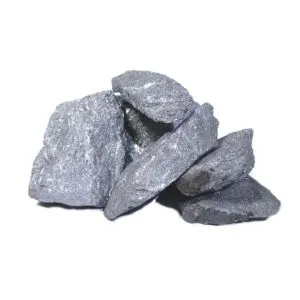
- Application : Used in steel and casting industries
- Silicon (Si) Content : 73-75%
View more...
Arabian Trading Establishment LLC
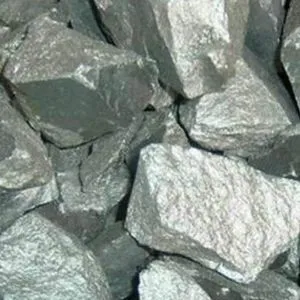
- Usage/Application : Steel production, Alloy manufacturing
- Material Type : Alloy
View more...
Gulferin
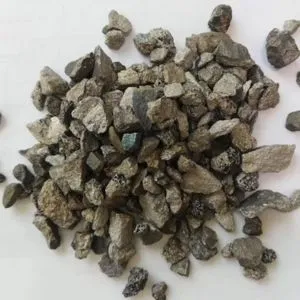
- Manganese (Mn) : 65% Min - 80% Min
- Silicon (Si) : 1.5% Max
View more...
World Metals And Alloys
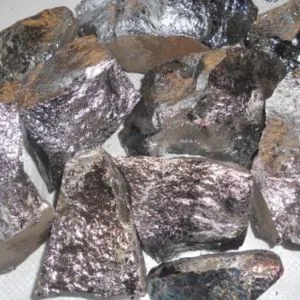
- Application : Steel mills, alloy production
- Material : High-quality Ferromanganese
View more...
Steel Force LLC
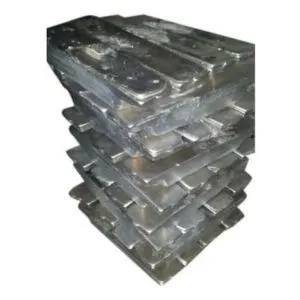
- Material : Aluminium
- Shape : Rectangular
View more...
Mgates International FZ LLC
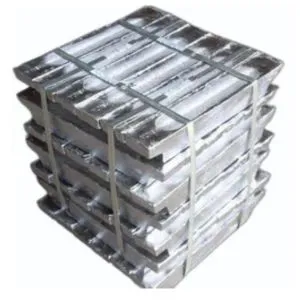
- Material Composition : Bluish-white lustrous metal
- Properties : Soft, malleable, ductile
View more...
Akbar Traders LLC
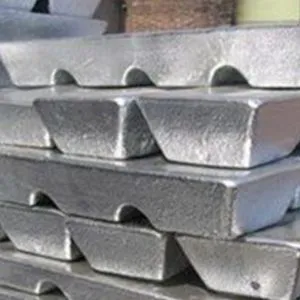
- Applications : Galvanizing, alloys, die casting, batteries, and more
- Physical Form : Ingots
View more...
Sun Metal Group
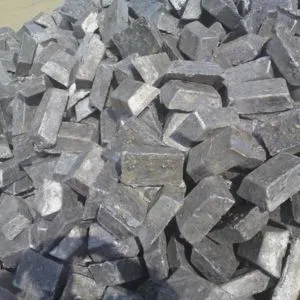
- Material : Metal
- Type : Iron Based Alloys
View more...
PGI Group
Other Categories
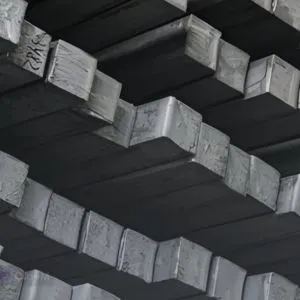
- Material Composition : High-grade Stainless Steel
- Billet Type : Square, Round, Rectangular
View more...
Green Metal Industries
An easy way to post your sourcing requests and get quotes.
- One request, multiple quotes
- Verified suppliers matching
- Quotes comparison and sample request
Metal Raw Materials in UAE
The UAE's metal industry plays a crucial role in both domestic and international markets acting as a foundation for diversifying the economy. When you look into this sector, you'll see it's essential for the local economy and a major contributor to global trade. The UAE has put in place strategic plans, like the Dubai Industrial Strategy 2030 and Abu Dhabi's Economic Vision 2030, to enhance manufacturing capabilities and lessen reliance on oil. This shift has led to increased investment in metal production and construction spurring growth across various sectors.
Key trading hubs like Dubai, Abu Dhabi, and Sharjah have a significant impact on the UAE's metal sector. Dubai serves as a bustling center for metal trade attracting companies from across the globe. Abu Dhabi, in contrast, focuses on producing premium metal goods and fostering innovation. Sharjah backs these efforts with its robust infrastructure and diverse industrial base. These cities combine to create a dynamic environment that spurs growth and positions the UAE as a leader in the metal industry.
Types of Metal Raw Materials Available in UAE
Ferrous Metals
Ferrous metals, primarily consisting of iron and its alloys, are crucial to the UAE's industrial landscape. They are extensively used in construction, manufacturing, and infrastructure projects. The local steel industry thrives on these materials, supporting economic growth and urban development across the nation.
Iron Ore
Iron ore is a key raw material for steel production, crucial for the UAE's construction and infrastructure sectors. The UAE imports iron ore primarily from Brazil and Australia to meet its growing demand. This material is essential for producing high-quality steel used in skyscrapers, bridges, and various construction projects, supporting the nation’s rapid urbanization and economic growth.
Steel Scrap
Steel scrap is recycled material derived from old steel products. in UAE, it plays a vital role in the steel manufacturing process, reducing waste and promoting sustainability. The country's robust recycling industry processes steel scrap into new products, helping to meet the demand for construction materials while minimizing environmental impact. This practice supports the UAE's commitment to sustainable development.
Pig Iron
Pig iron is an intermediate product of smelting iron ore in a blast furnace. in UAE, it serves as a primary raw material for producing various steel products. It is commonly used in foundries and manufacturing industries, contributing to the production of durable goods such as automotive parts and machinery components. The availability of pig iron supports local manufacturing capabilities.
Non-Ferrous Metals
Non-ferrous metals, including aluminum, copper, and zinc, play a vital role in UAE's diverse economy. Their lightweight and corrosion-resistant properties make them ideal for the construction, automotive, and electronics industries. The UAE's strategic location facilitates the import and export of these essential metal products.
Aluminium
Aluminum is widely used in UAE due to its lightweight and corrosion-resistant properties. It is essential in various sectors, including construction, automotive, and aerospace. The UAE has a significant aluminum industry, with companies like Emirates Global Aluminium leading production. Aluminum is utilized in window frames, roofing materials, and vehicles, reflecting its importance in modern infrastructure.
Copper
Copper is a highly conductive metal used extensively in electrical applications. in UAE, it is crucial for wiring, plumbing, and electronic components. The demand for copper continues to rise with the expansion of infrastructure projects and technological advancements. Local manufacturers supply copper products that support various industries, including construction and telecommunications.
Zinc
Zinc is primarily used for galvanizing steel to prevent corrosion. in UAE's construction sector, zinc-coated materials are vital for enhancing durability and longevity. This metal is also used in batteries and various alloys. The growing focus on sustainable building practices has increased the demand for zinc-coated products in the region.
Lead
Lead is used in batteries and radiation shielding applications. While its use has declined due to health concerns, it remains important in specific industries such as automotive and electronics within UAE. Local regulations ensure that lead is handled safely, reflecting the country’s commitment to public health while maintaining industrial productivity.
Precious Metals
Precious metals like gold and silver are highly valued in UAE for their investment potential and use in jewelry. The country is a significant hub for gold trading, with Dubai known as the "City of Gold." These metals are also used in electronics and medical applications. The vibrant market for precious metals supports both local artisans and international trade.
Alloys and Specialty Metals
Alloys and specialty metals, such as steel alloys and titanium alloys, are integral to advanced manufacturing in UAE. These materials enhance strength and durability in various applications, including aerospace and energy sectors. Their availability supports innovation and technological advancements within the region's growing industrial landscape.
Steel Alloys
Steel alloys are engineered materials that enhance strength and resistance to wear and corrosion. in UAE, they are widely used in construction, automotive manufacturing, and oil & gas industries. These alloys provide essential properties needed for high-performance applications, supporting the country’s diverse industrial landscape.
Nickel-based Alloys
Nickel-based alloys are known for their excellent resistance to heat and corrosion. They are utilized in high-temperature applications such as gas turbines and chemical processing equipment in UAE's oil & gas sector. The demand for these alloys is increasing due to ongoing investments in energy infrastructure.
Aluminum Alloys
Aluminum alloys combine lightweight properties with enhanced strength, making them ideal for aerospace and automotive applications. in UAE, these alloys are crucial for manufacturing aircraft components and lightweight vehicles. Their versatility supports innovation across multiple industries while contributing to sustainability efforts through reduced energy consumption.
Titanium Alloys
Titanium alloys are renowned for their high strength-to-weight ratio and corrosion resistance. in UAE, they are primarily used in aerospace applications and medical implants due to their biocompatibility. The growing healthcare sector further drives demand for titanium products as they offer durability without compromising weight or performance.
Sourcing and Supply Chain in UAE
The United Arab Emirates (UAE) has established itself as a pivotal hub for sourcing and supply chain activities in the Middle East. Its strategic location, robust infrastructure, and diverse economy facilitate extensive trade and commerce. Below are detailed insights into various aspects of the UAE's sourcing and supply chain landscape.
Major Suppliers and Distributors
The UAE's supply chain is supported by a network of major suppliers and distributors across various sectors. Key players include:
- • Metals Raw Materials Companies in UAE: The UAE is home to several prominent companies specializing in metals and raw materials. These companies play a crucial role in supplying metals for construction, manufacturing, and other industries.
- • Food and Beverage Suppliers: The food sector relies heavily on imports, with major suppliers including countries like India, the United States, and Saudi Arabia. Local distributors help channel these products into the market efficiently.
- • Machinery and Equipment Distributors: The UAE imports a significant amount of machinery from countries like China and Germany, with local distributors ensuring that these products reach various industries, including construction and manufacturing.
Import/Export Statistics
The UAE's trade statistics reflect its status as a global trading hub:
- • In 2023, the total value of imports was approximately $448.69 billion, highlighting the country's reliance on foreign goods to meet domestic demand.
- • Exports were valued at around $515.62 billion, with petroleum products being the leading export category, followed by gold and machinery (Statista).
- • The UAE's trade balance indicates a strong export market, particularly for raw materials like metals and petroleum.
Key Source Countries
The primary source countries for imports into the UAE include:
- • China: A major supplier of machinery and electronics, accounting for about 15.98% of total imports.
- • India: Provides a wide range of goods, including textiles, food products, and machinery, contributing significantly to the UAE's import statistics.
- • United States: Supplies high-tech equipment and machinery, vital for various sectors within UAE economy (WITS).
These countries are integral to maintaining the flow of raw materials UAE needs for its diverse industries.
Local Production Capabilities
The UAE is actively working to enhance its local production capabilities through initiatives such as Operation 300bn:
- • The industrial sector contributed approximately $53.6 billion to the economy in 2023, demonstrating significant growth in local manufacturing capabilities.
- • The government aims to increase local production of raw materials by incentivizing industries to source locally through initiatives that support small and medium enterprises (SMEs).
- • Local production not only reduces dependency on imports but also fosters economic diversification.
Storage and Warehousing Facilities
Efficient storage and warehousing are critical components of the UAE's supply chain:
- • The UAE boasts some of the largest ports in the world, such as Jebel Ali Port, which facilitate efficient logistics operations.
- • Warehousing services are increasingly leveraging technology to improve inventory management and reduce costs. Advanced systems such as RFID tagging and automated inventory management are becoming standard practice.
- • The strategic location of warehousing facilities allows businesses to access both local markets and international trade routes easily.
The sourcing and supply chain landscape in UAE is characterized by a mix of robust import/export activities, significant reliance on key source countries, ongoing efforts to boost local production capabilities, and advanced warehousing solutions. This dynamic environment positions the UAE as a vital player in global trade networks while fostering sustainable economic growth through diversification efforts.
Quality Standards and Certification in UAE
UAE Quality Regulations
The Emirates Authority for Standardization and Metrology (ESMA) is the primary regulatory body overseeing quality standards in UAE. It ensures that products meet national and international standards through various certification schemes. ESMA's role includes:
- • Regulatory Authority: ESMA governs the certification of regulated products, ensuring compliance with international standards.
- • Technical Committees: These committees monitor quality management across various sectors, including food, construction, and electronics.
- • Emirates Conformity Assessment Scheme (ECAS): This scheme is essential for product certification, requiring adherence to national and international standards.
International Standards Compliance
The UAE emphasizes compliance with international standards to facilitate trade and ensure consumer safety. Key aspects include:
- • Reference to Global Standards: UAE standards often align with those from the GCC (Gulf Cooperation Council) Standardization Organization and international bodies like ISO.
- • Accreditation Systems: The Emirates National Accreditation System (ENAS) accredits conformity assessment bodies, ensuring they meet international benchmarks.
- • Quality Management Systems: Organizations are encouraged to implement effective quality management systems to maintain compliance.
Testing and Inspection Procedures
Testing and inspection are critical components of the quality assurance process in UAE:
- • Mandatory Testing: Products must undergo testing by accredited laboratories to verify compliance with safety and quality standards.
- • Inspection Protocols: Regular inspections are conducted on manufacturing processes to ensure ongoing compliance with established regulations.
- • Certification Process: After successful testing and inspection, products can receive certificates such as the Emirates Quality Mark (EQM) or ECAS Certificate.
Required Certifications
Several certifications are essential for businesses operating in UAE:
- • ECAS Certificate: Required for regulated products, this certificate confirms compliance with UAE standards. It is valid for one year and must be renewed annually.
- • Emirates Quality Mark (EQM): A voluntary mark indicating compliance with international quality standards, valid for three years. It is mandatory for bottled drinking water.
- • ISO Certifications: Various ISO certifications (e.g., ISO 9001 for quality management) enhance credibility and marketability.
Quality Assurance Processes
Quality assurance in UAE involves systematic processes to ensure product reliability:
- • Continuous Improvement: Manufacturers are encouraged to adopt practices that promote continual enhancement of product quality.
- • Auditing and Monitoring: Regular audits assess compliance with quality management systems, ensuring that products consistently meet required standards.
- • Documentation Requirements: Companies must maintain comprehensive documentation of their quality assurance processes to facilitate inspections and certifications.
Market Analysis
Current Market Trends
The metals raw materials market in UAE has shown significant growth, driven by the ongoing infrastructure projects and industrial expansion. The UAE government has invested heavily in various sectors, including construction and energy, which has increased the demand for metals raw materials in UAE. For instance, the construction sector alone is expected to grow at a compound annual growth rate (CAGR) of 7.5% from 2021 to 2026, leading to higher consumption of steel and aluminum.
Additionally, the UAE's strategic location as a trade hub facilitates easy access to global markets, enhancing the import and export dynamics of raw materials UAE. Companies such as Khambati Metal Industries and All Metals Industries are key players, supplying a wide range of metal products to various industries, including oil and gas, construction, and manufacturing.
Price Factors and Variations
Prices of metals raw materials in UAE are influenced by several factors:
- • Global Market Trends: Fluctuations in global prices of metals like steel and aluminum significantly impact local pricing. For example, steel prices have seen volatility due to changes in demand from major markets like China.
- • Supply Chain Disruptions: Events such as geopolitical tensions or natural disasters can disrupt supply chains, leading to price increases. The COVID-19 pandemic highlighted vulnerabilities in global supply chains, affecting availability and costs.
- • Currency Fluctuations: The strength of the US dollar against other currencies can affect import costs for metals. Since many transactions are dollar-denominated, any appreciation of the dollar can lead to higher prices for imported materials.
Supply and Demand Dynamics
The dynamics of supply and demand for raw metal materials UAE are shaped by several key factors:
- • Infrastructure Development: The UAE's ambitious projects like Expo 2020 and various mega infrastructure developments have created a surge in demand for metals. This demand is expected to continue as new projects are announced.
- • Local Production vs. Imports: While local manufacturers provide a significant portion of metals raw materials, the UAE still relies on imports for certain high-grade materials. This creates a balanced but competitive market where local companies must maintain quality to compete with international suppliers. ( 6Wresearch)
- • Recycling Initiatives: The UAE is increasingly focusing on sustainable practices, including recycling metals. This trend is expected to affect both supply and demand dynamics as recycled materials become more prevalent in the market.
Future Growth Prospects
The future growth prospects for metals raw material companies in UAE appear promising:
- • Sustainable Practices: There is a growing emphasis on sustainability within the construction and manufacturing sectors. Companies that adopt eco-friendly practices are likely to gain a competitive edge.
- • Technological Advancements: Innovations in production techniques and material science are expected to enhance efficiency and reduce costs in metal production. This could lead to increased profitability for companies that invest in new technologies. (Mordor Intelligence)
- • Diversification of Markets: As the UAE continues to diversify its economy away from oil dependence, sectors such as renewable energy and technology will create new opportunities for metals suppliers.
Market Challenges and Opportunities
While there are numerous opportunities within the metals raw materials sector, challenges remain:
- • Competition from Global Suppliers: Local companies face stiff competition from international suppliers who may offer lower prices or superior products. This necessitates a focus on quality and customer service among metals raw materials companies in UAE.
- • Regulatory Changes: Changes in environmental regulations can impact production processes and costs. Companies must stay adaptable to comply with new laws while maintaining profitability.
- • Market Volatility: The metals market is subject to price fluctuations due to various external factors, including economic downturns or shifts in consumer preferences. Companies need robust risk management strategies to navigate these uncertainties.
The metals raw materials market in UAE is poised for growth driven by infrastructure development and technological advancements. However, companies must navigate challenges such as competition and regulatory changes while seizing opportunities presented by sustainability initiatives and market diversification.
Trading and Purchase Guidelines
Trading and purchase guidelines provide essential steps for sourcing metals raw materials in UAE. These guidelines ensure compliance with regulations, streamline procurement processes, and promote successful supplier relationships.
Buying Procedures
In UAE, purchasing metals raw materials involves several steps. Buyers should identify reliable metals raw materials suppliers in UAE, request quotes, and compare prices. After selecting a supplier, a purchase order is issued, detailing the specifications and quantities. Clear communication is essential to ensure both parties understand the terms.
Documentation Requirements
Documentation is crucial when purchasing metals raw materials in UAE. Buyers must provide identification, business licenses, and import/export permits. Suppliers typically require a purchase order and specifications for the materials. Compliance with local regulations ensures smooth transactions and helps avoid legal issues during procurement.
Payment Terms and Options
Payment terms for metals raw materials in UAE can vary by supplier. Common options include bank transfers, letters of credit, or cash on delivery. It's advisable to negotiate favorable terms upfront, including payment schedules and any applicable discounts for bulk purchases to enhance cash flow management.
Shipping and Logistics
Shipping logistics are vital in transporting metals raw materials within and outside the UAE. Buyers should coordinate with suppliers regarding delivery timelines and costs. Utilizing local logistics companies can streamline the process, ensuring timely delivery while adhering to customs regulations for imports or exports.
Custom Clearance Procedures
Customs clearance is essential for importing metals raw materials into the UAE. Buyers must submit necessary documentation, including invoices and shipping manifests, to customs authorities. Engaging a customs broker can facilitate this process, ensuring compliance with local laws and reducing delays at ports.
Tips for Buyers
Buyers should familiarize themselves with the local market when purchasing metals raw materials in UAE. Understanding supplier capabilities, market trends, and regulatory requirements can enhance decision-making. Building strong relationships with suppliers also fosters better pricing and service levels over time.
Material Selection Guidance
When selecting metals raw materials in UAE, consider factors such as application requirements, material properties, and supplier reputation. Researching metals raw materials manufacturers in UAE can help identify high-quality options suited to specific project needs while ensuring compliance with industry standards.
Quality Checking Procedures
Quality assurance is critical when sourcing metals raw materials. Buyers should establish criteria for inspection upon delivery, including checking for certifications and conducting physical inspections of samples. Collaborating with reputable metals raw materials companies ensures adherence to quality standards throughout the supply chain.
Price Negotiation Strategies
Effective price negotiation requires preparation and understanding of market conditions. Buyers should research current prices from various metals raw materials suppliers, be clear about their budget, and leverage volume purchases to negotiate better rates. Building long-term relationships can also lead to more favorable pricing over time.
Common Pitfalls to Avoid
Buyers should avoid common pitfalls such as neglecting due diligence on suppliers or failing to verify material certifications. Inadequate communication regarding specifications can lead to costly mistakes. Additionally, overlooking shipping logistics may result in delays that impact project timelines.
Best Practices
Adopting best practices in procurement ensures successful transactions of metals raw materials in UAE. Establish clear communication channels with suppliers, maintain accurate records of transactions, and conduct regular market research to stay informed about pricing trends. Regularly reviewing supplier performance can also enhance procurement efficiency.
Legal and Regulatory Framework in UAE
The United Arab Emirates (UAE) has a comprehensive legal and regulatory framework governing various aspects of business operations, particularly in import/export regulations, trade licenses, required permits, compliance requirements, and safety regulations.
Import/Export Regulations
- • Customs Regulations: The UAE has established a robust customs framework that regulates the import and export of goods. This includes compliance with the Federal Customs Authority's guidelines, which require businesses to declare all goods accurately and pay the necessary duties. The UAE Customs Law emphasizes the importance of adhering to international trade agreements and standards.
- • Prohibited and Restricted Goods: Certain items are prohibited or restricted from import/export under UAE law. These include drugs, weapons, and materials that may harm public safety or morality. Businesses must familiarize themselves with these restrictions to avoid penalties.
- • Documentation Requirements: Importers and exporters must prepare specific documentation, including commercial invoices, packing lists, bills of lading, and certificates of origin. Accurate documentation is crucial for smooth customs clearance and to avoid delays.
Trade Licenses
- • Types of Trade Licenses: Businesses in UAE must obtain appropriate trade licenses depending on their activities. The main types include commercial licenses for trading activities, professional licenses for service providers, and industrial licenses for manufacturing entities. Each license type has specific requirements and regulations.
- • Obtaining a Trade License: To obtain a trade license, businesses must submit an application to the Department of Economic Development (DED) in their respective emirate. This process typically involves providing necessary documents such as a business plan, proof of identity, and lease agreements for physical premises.
- • Renewal and Compliance: Trade licenses must be renewed annually. Businesses must ensure compliance with local laws and regulations to maintain their licenses. Failure to comply can result in fines or suspension of the license.
Required Permits
- • Special Permits for Certain Activities: Some business activities require additional permits beyond the standard trade license. For example, businesses involved in food services need health permits from the relevant health authority, while construction companies require permits from municipal authorities.
- • Environmental Permits: Companies that may impact the environment must obtain environmental permits from relevant agencies like the Ministry of Climate Change and Environment (MOCCAE). This ensures that businesses adhere to environmental protection standards.
- • Sector-Specific Regulations: Different sectors may have unique requirements. For instance, financial institutions need approval from the Central Bank of the UAE, while healthcare providers must comply with regulations set by the Ministry of Health and Prevention (MOHAP).
Compliance Requirements
- • Legal Compliance Framework: The UAE enforces a strict compliance framework requiring businesses to adhere to federal laws as well as local emirate regulations. This includes labor laws, tax regulations, and industry-specific standards.
- • Regular Audits and Inspections: Businesses may be subject to audits by various regulatory bodies to ensure compliance with applicable laws. Regular inspections help identify any non-compliance issues that need addressing.
- • Penalties for Non-compliance: Non-compliance can lead to significant penalties, including fines, suspension of licenses, or even legal action. Businesses must stay informed about changes in regulations to avoid such consequences.
Safety Regulations
- • Occupational Health and Safety (OHS): The UAE has established comprehensive OHS regulations aimed at protecting workers' health and safety. Employers are required to provide a safe working environment by implementing safety measures and conducting regular risk assessments.
- • Health and Safety Training: Employers must provide adequate training for employees on health and safety protocols relevant to their specific roles. This includes training on emergency procedures, proper use of equipment, and hazard recognition.
- • Reporting Obligations: In case of workplace accidents or injuries, employers are obligated to report incidents to the Ministry of Human Resources and Emiratisation (MOHRE) within 24 hours. Maintaining records of such incidents is also mandatory for compliance purposes.
Find Reliable Metals Raw Materials Manufacturers on TradersFind
Finding reliable metals raw materials manufacturers on TradersFind offers numerous advantages for businesses in UAE. The platform showcases a wide variety of products, including steel and aluminum, complete with detailed descriptions and specifications. Each listing provides essential information such as the company name, product offerings, and verification status, ensuring reliability. Additionally, contact details like mobile and WhatsApp numbers facilitate easy communication. By using TradersFind, users can efficiently connect with verified suppliers, enhancing their procurement process and supporting their business needs.
Frequently Asked Questions
Q: What are metal raw materials, and why are they important?
A: Metal raw materials are essential components used in the production of various goods, including construction materials and electronics. They play a crucial role in modern industries and contribute significantly to economic growth and technological advancement.
Q: What types of metal raw materials are available in UAE?
A: The UAE offers both ferrous and non-ferrous metals. Ferrous metals include iron, steel scrap, and pig iron, while non-ferrous metals encompass aluminum, copper, zinc, lead, and precious metals like gold and silver.
Q: What are the current market prices for different metals?
A: Current market prices for metals can fluctuate based on global trends, supply chain dynamics, and local demand. Specific prices for metals like steel, aluminum, and copper vary and are influenced by factors such as geopolitical events and market conditions.
Q: What is the minimum order quantity?
A: The minimum order quantity (MOQ) can differ among suppliers in UAE. Typically, it is set based on the type of metal and the supplier's policies. Buyers should check directly with suppliers to determine their specific MOQs.
Q: What quality certificates are required?
A: in UAE, essential quality certifications include:
- • ECAS Certificate: Required for regulated products, confirming compliance with UAE standards.
- • Emirates Quality Mark (EQM): Indicates adherence to international quality standards.
- • ISO Certifications: Various ISO certifications enhance credibility and marketability.
A: To verify material quality, buyers should:
- • Request certifications from suppliers.
- • Conduct physical inspections of samples upon delivery.
- • Collaborate with reputable suppliers known for adhering to quality standards.
A: Standard grades for metals vary by type but generally include:
- • Ferrous Metals: Various grades of steel and iron.
- • Non-Ferrous Metals: Grades of aluminum, copper, and zinc, each tailored for specific applications.
- • Buyers should consult with suppliers for detailed specifications on available grades.
A: Delivery timeframes depend on factors such as supplier location, order size, and logistics. Typically, local deliveries may take a few days to a week, while international shipments could take longer. Buyers should discuss expected delivery times with their suppliers during the ordering process.
Copyright © 2024 Interconnect Marketing Management L.L.C All rights reserved.















